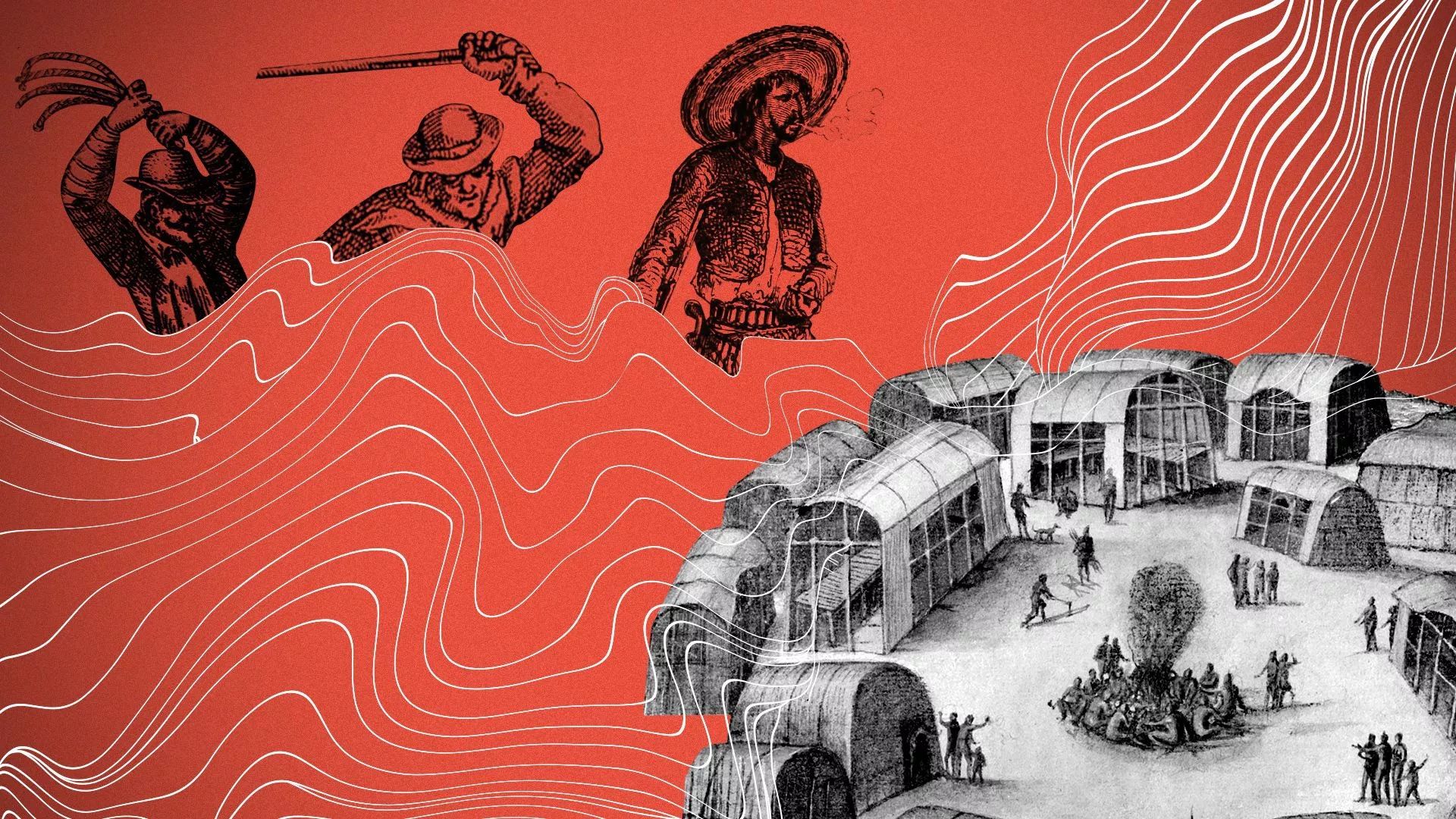| |
| |
| |
| Presented By Bank of America |
| |
| Axios AM |
| By Mike Allen · Oct 10, 2022 |
| Hello, Monday. It's Columbus Day and Indigenous Peoples' Day — both by presidential proclamation. - Smart Brevity™ count: 1,485 words ... 5½ minutes. Edited by Justin Green.
🔋 Tomorrow at 8 a.m. ET, join Axios' Andrew Freedman, Ben Geman and Niala Boodhoo in D.C. for an event exploring global energy security amid the shift to cleaner sources. Register here to attend in person or virtually. |
| |
| |
| 🇷🇺 1 big thing: Russia's revenge |
| Police block the scene of Russian shelling in Kyiv, the capital, today. Photo: Efrem Lukatsky/AP It's being called Russia's biggest barrage against Ukraine since the invasion 7½ months ago: - Russia fired cruise missiles at cities across Ukraine during this morning's rush, killing civilians and knocking out power, water and heat, Reuters reports.
Vladimir Putin declared the "mass strike" to be revenge for Ukrainian attacks, including an inferno that hit his prized bridge to Crimea this weekend. - In a televised address, Putin said he ordered strikes against energy, command and communication targets, with missiles fired from air, sea and land.
- "The Kyiv regime ... has put itself on the same level as international terrorist organizations," Putin said, threatening future strikes.
What's happening: The missiles tore into busy intersections, parks and tourist sites in the center of downtown Kyiv with an intensity not seen since Russian forces tried to capture the capital early in the war. - Explosions were also reported in Lviv, Ternopil and Zhytomyr in western Ukraine ... Dnipro and Kremenchuk in central Ukraine ... Zaporizhzhia in the south ... and Kharkiv in the east.
Police inspect the scene of Russian shelling in Kyiv today. Photo: Efrem Lukatsky/AP 🇺🇦 Ukrainian officials said at least 10 people were killed. - The strikes tore a huge crater next to a children's playground in one of central Kyiv's busiest parks.
President Volodymyr Zelensky said the rush-hour attacks were deliberately timed to kill people. - "They are trying to destroy us and wipe us off the face of the earth," Zelensky said on the Telegram messaging app.
Ukraine's defense ministry said Russia had fired 81 cruise missiles, and Ukraine's air defenses shot down 43 of them. |
    |
| |
| |
| 2. 📊 Fraud suspicions spread |
 Data: Axios/Ipsos (1,004 adults; margin of error: ±3.8 points). Chart: Tory Lysik/Axios 4 in 10 Republicans — and 1 in 4 Democrats — say they'll blame election fraud if their party doesn't win control of Congress next month, Margaret Talev and David Nather write from the Axios-Ipsos Two Americas Index. - Why it matters: 29 days from the 2022 midterms, 2020's Big Lie is alive and morphing into a broader distrust of institutions and elections.
🍽️ Between the lines: The survey found that Americans who'd shared a meal in the past month with someone with a different political affiliation would be more skeptical about jumping to conclusions about fraud. |
    |
| |
| |
| 3. New focus on Indigenous enslavement |
 |
|
| Photo illustration: Aïda Amer/Axios. Photos: Hulton Archive, Culture Club, Library of Congress/Corbis/VCG, Ann Ronan Pictures/Print Collector/via Getty Images |
| |
| A new project is building a massive website uncovering the enslavement of Native Americans, Axios' Russell Contreras reports. - Why it matters: The killing of George Floyd drew attention to systemic racism and the legacy of slavery. But most people know very little about Indigenous enslavement in the U.S. and Latin America.
"Native Bound Unbound: Archive of Indigenous Americans Enslaved" promises to digitize and piece together stories of the millions of Indigenous people whose lives were shaped by slavery. - Using documents, baptismal records, letters and oral histories, the site will allow people to search for Native Americans who were enslaved and locate possible descendants.
The website is expected to go live in about a year and a half. - It will be similar to Enslaved.org — a database that gathers records about the lives of enslaved Africans and their descendants.
- Users can look up relatives and trace their histories.
🔭 Zoom out: Indigenous slavery co-existed with African slavery from the sixteenth up to the late nineteenth century, Andrés Reséndez wrote in "The Other Slavery: The Uncovered Story of Indian Enslavement in America." - He estimates that between 2.5 million to 5 million Indigenous people were enslaved from the time of Columbus to the end of the nineteenth century.
Apache members were enslaved in the American Southwest and sold to work in mines in Mexico. Latter-day Saints settlers in Utah purchased enslaved Native Americans and converted them. |
    |
| |
| |
| A message from Bank of America |
| The latest Insights on small business owners |
| |
 |
| |
| Bank of America's Women & Minority Business Owner Spotlight finds that despite challenges of inflation, supply chain and labor shortages, business owners' confidence in the economy increased significantly. Nearly 40% of business owners plan to hire over the next year. |
| |
| |
| 4. 📷 1,000 words |
| Photo: Paolo Giovannini/AP Hundreds of boats joined the 54th annual Barcolana — which calls itself "the largest sailing race in the world" — yesterday in the gulf of Trieste, northeastern Italy. - Deep Blue, with Wendy Schmidt at the helm, won the 13-nautical-mile regatta with a time of 57 minutes and 47 seconds.
Photo: Alessandro Garofalo/Reuters See the course ... Race history. |
    |
| |
| |
| 5. ⚖️ Justices seen as pols |
 Data: Annenberg Judicial Branch Survey. Chart: Will Chase/Axios Out this morning: The perception is growing that Supreme Court justices are partisans, just like any other politicians, according to the Annenberg Public Policy Center of the University of Pennsylvania. - Why it matters: The center, which has tracked opinions about the court over 17 years, says that in most years, "differences in trust in the court by party affiliation have not been meaningful. That changed in 2022, with a wide gap separating Republicans from Democrats and independents on some attitudes toward the court."
Trust is driven by party: 70% of Republicans — but only 32% of Democrats — have a "great deal" or "fair amount" of trust in the court. |
    |
| |
| |
| 6. Teens shot outside N.Y. candidate's home |
 |
|
| Cover: N.Y. Post. Photo: Gregory P. Mango |
| |
| Rep. Lee Zeldin, the Republican candidate for governor in New York, says two 17-year-olds were shot outside his home on Long Island yesterday while his two teenage daughters were doing homework inside. - "After my daughters heard the gunshots and the screaming, they ran upstairs, locked themselves in the bathroom and immediately called 911," said Zeldin, who's challenging New York Gov. Kathy Hochul (D) in next month's election.
- "Like so many New Yorkers, crime has literally made its way to our front door."
Context: Zeldin, like many Republicans, has made violent crime a focus of his campaign. He argues Democratic policies have led to skyrocketing crime rates. He has called for New York's bail laws to be toughened. Suffolk County police said the two men were taken to a hospital with injuries that weren't life-threatening, the N.Y. Times reports (subscription). - Police said there's no known connection between the injured and the Zeldins.
|
    |
| |
| |
| 7. 💵 Bernanke shares Nobel |
| Photo: Anders Wiklund/TT News Agency via Getty Images When an economy collapses, that country's banks tend to fail. But the opposite is also true: Bank failures can cause economic collapse. - That insight won this year's economics Nobel prize for former Fed Chair Ben Bernanke, now of Brookings ... Douglas Diamond of the University of Chicago ... and Philip Dybvig of Washington University in St. Louis.
Why it matters: Bernanke was able to put his theory into practice as Fed chair during the financial crisis of 2008-9, Axios chief financial correspondent Felix Salmon writes. - By using extraordinary powers to prevent a broad wave of bank implosions, Bernanke prevented the Great Recession from becoming a second Great Depression.
💡 Our thought bubble, from Axios chief economic correspondent Neil Irwin: - Banks matter for the rest of the economy. That's the basic insight of Bernanke, Diamond and Dubig.
- Bernanke showed that when banks fail, the ripple effects are profound, as shown most clearly 1930-33. His landmark paper on the Great Depression was published in 1983.
It's a remarkable accident of history that a man with that particular intellectual backing was in place to prevent it from happening again. |
    |
| |
| |
| 8. 📺 New record for network morning team |
| Robin Roberts and George Stephanopoulos. Photo: Heidi Gutman/ABC via AP After nearly 13 years at the helm of ABC's "Good Morning America," co-anchors Robin Roberts and George Stephanopoulos, both 61, are the longest-ever network morning-show pair, AP's David Bauder reports. - A handful of hosts had longer tenures — Katie Couric, Bryant Gumbel, Matt Lauer and Joan Lunden. But each had more than one partner.
- Lunden and Charles Gibson lasted 10 years together on "Good Morning America." Couric and Lauer had a nine-year run on "Today."
🧮 By the numbers: Like most TV shows, "GMA," "Today" and "CBS Mornings" have lost viewers — from 12.4 million cumulatively in 2010 to 8.7 million this year. "GMA" leads, but is down 26% in that time. - The shows, including "GMA," are producing more material for different formats, especially podcasts.
- "GMA" is trying to appear less New York/L.A.-centric by featuring more guests and experts from other parts of the country, executive producer Simone Swink said.
Stephanopoulos said he initially turned down then-ABC News President David Westin when the network was replacing Diane Sawyer. - Stephanopoulos, who started at ABC News on Inauguration Day 1997, was a Washington insider from his days in the Clinton administration and as anchor of "This Week," a job he retains.
- Westin said: "When you put things together you don't think about how long it will last ... You're never sure."
Roberts said she knew of doubts among some ABC execs because her background was in sports broadcasting: "I get weepy when I think of how I beat the odds." - Roberts had chemotherapy and was off the air for five months starting in 2012 after a bone marrow transplant to treat MDS. She contracted the blood and bone marrow disease from treatment for breast cancer. She still keeps a close watch on her immune system.
|
    |
| |
| |
| A message from Bank of America |
| Entrepreneurs' view on accessing capital |
| |
 |
| |
| Bank of America's new report finds that access to capital remains a key issue for women and minority business owners, with half of AAPI, Black and Hispanic-Latino business owners experiencing challenges. Read the Women & Minority Business Owner Spotlight. |
| |
| 📬 Invite your friends to sign up to get their daily essentials — Axios AM, PM and Finish Line. |
 | | Are you a fan of this email format? It's called Smart Brevity®. Over 300 orgs use it — in a tool called Axios HQ — to drive productivity with clearer workplace communications. | | |














No comments:
Post a Comment